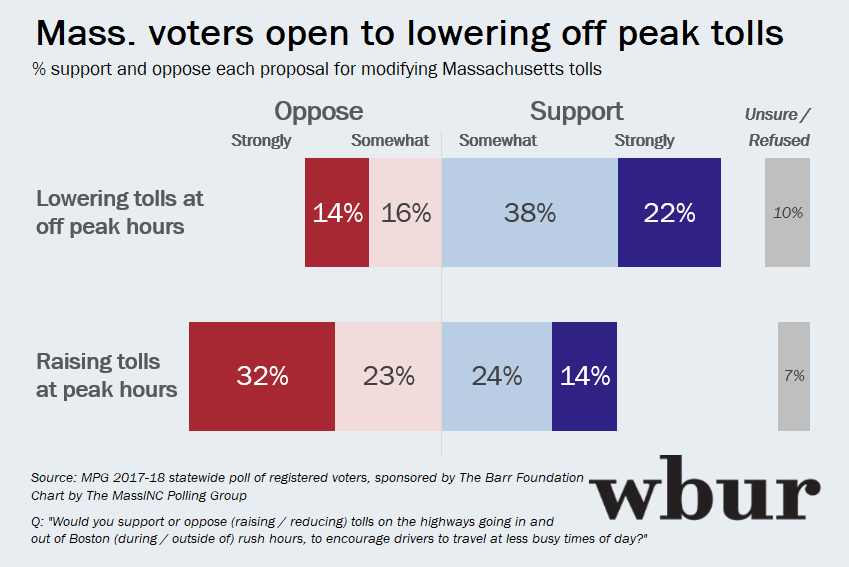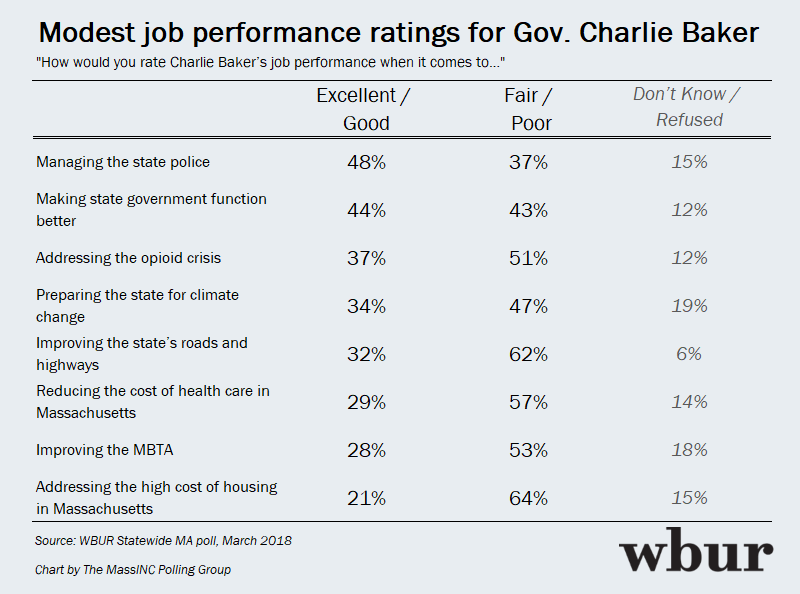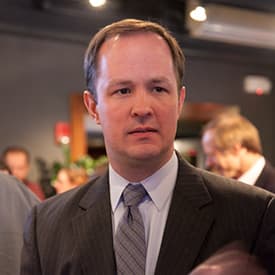Advertisement
Analysis
Baker Veto Threat Targets Popular Toll Discount Program

The long-delayed state budget, which Gov. Charlie Baker could sign Thursday, includes a pilot program to study the effect of offering toll discounts during off-peak hours of traffic. The idea is to persuade some drivers to commute earlier or later by offering lower tolls, thereby reducing traffic for those who still commute during rush hour.
The pilot would collect data to help the state decide whether or not to roll out the discount program more broadly.
The legislation would leave the length and location of the pilot up to MassDOT, which would also decide the final amount of the discount that early or late commuters would see. The bill does specify that no one's tolls would be allowed to increase as part of the trial. Currently the Mass. Pike, the Tobin Bridge and the Boston Harbor tunnels are the only parts of the state highway system that are tolled.

It’s a popular idea: Our polling for The Barr Foundation shows 61 percent of voters in the state support off-peak toll discounts, while 30 percent oppose the idea.
With numbers like that, you’d think the proposal would sail through like a car going under one the state’s new all-electronic tolling gates. But as of last week, Baker was not sold. During a radio appearance Friday, he called the proposal “incredibly punitive” to drivers who do not have flexibility to shift their schedules.
The Boston Globe responded with an editorial urging the governor to reconsider, while the Herald hit the road to find drivers opposed to the idea. Those drivers echoed Baker’s chief concern: that the program would be unfair to drivers who are unable to change their schedules to take advantage of the lower, off-peak tolls.
The commuters the Herald interviewed are no doubt heartfelt in their frustration, but they are a minority of voters overall. The polling shows that for every driver offering these concerns, there are two more who support the toll discounts. If the pilot works, those who need to drive during rush hour will benefit from a shorter commute while paying no more than they do now. If it doesn't work, things go back to as they were before.
Charging more for something that is both scarce and in high demand (i.e. road space at rush hour) follows fairly basic economic principles. And it’s been effective in other cities where a congestion pricing scheme has been implemented, shifting some drivers to something that is less scarce and in lower demand (i.e. road space any other time). It's also an idea the MBTA is working on, charging more for certain parking lots at certain times, based on demand patterns. The city of Boston tested variable rates for parking and found it freed up parking spaces and cut down on traffic caused by cars circling looking for spots.
Elsewhere, congestion pricing for tolls has often involved boosting fees at peak times, which can be a heavy political lift. Asking drivers to pay more during the rush hour is about as unpopular in Massachusetts as toll discounts are popular. The same Barr poll found a majority opposed to higher rush-hour tolls. But that is the opposite of the current proposal. And for now, it’s only a pilot, so would not touch most drivers.
A broader look at transportation sheds some light on why voters are willing to give discounts a try. The same poll found only 14 percent think that transportation has gotten better over the past five years, while most say it’s staying the same or getting worse. Transportation has risen to a top-tier policy issue in recent years, now polling alongside other perennial priorities like public education.
WBUR polled Boston-area drivers in 2016 about their commutes and found a high level of frustration with delays on the roads and trains. A majority overall (57 percent) thought traffic had gotten worse over the past five years. There is some data to suggest it continues to worsen. This year’s INRIX Global Traffic Scorecard found that Boston drivers spend 14 percent of their driving time in congestion -- the highest figure among American cities. Several national rankings place Massachusetts at or near the top of states to live and work, but put our transportation system near the bottom. US News ranked Massachusetts 46th in road quality, and 42nd overall on transportation issues.
Given these statistics, one might think elected officials would be open to trying new approaches to alleviate the crushing traffic in and around Boston. But Baker has been reluctant even to study new ideas for transportation.
In 2016, he vetoed a pilot program to study a so-called Vehicle Miles Traveled fee, which some see as an eventual successor to the gas tax. That year he also vetoed a study of a rail link between Springfield and Boston, although he has since come around to support it. When pressed on progress at the MBTA, Baker told Radio Boston earlier this summer that his vision for the T was “making the thing work."
Making the current system work is certainly something anyone would support. But the Barr poll also found a willingness to go beyond that. Majorities in that poll supported tolls on roads that do not currently have them, provided the money collected stays in that region. Majorities also favored giving cities and regions the power to fund their own transportation projects through ballot questions, and imposing a pollution fee on gasoline importers to fund clean transportation.

And while Baker continues to enjoy some of the best favorable and job approval ratings in the country, his approval on specific issues, including transportation, is less impressive. A June WBUR poll found just 32 percent thought Baker had done an excellent or good job on the roads; 28 percent felt the same about his work on the T.
Baker’s track record on traffic could face more scrutiny if the governor's race shifts out of neutral. There's plenty for voters to think about when it comes to the transportation woes in the Boston region these days. And the way traffic and the MBTA are these days, there's also plenty of time to sit and think about it.

